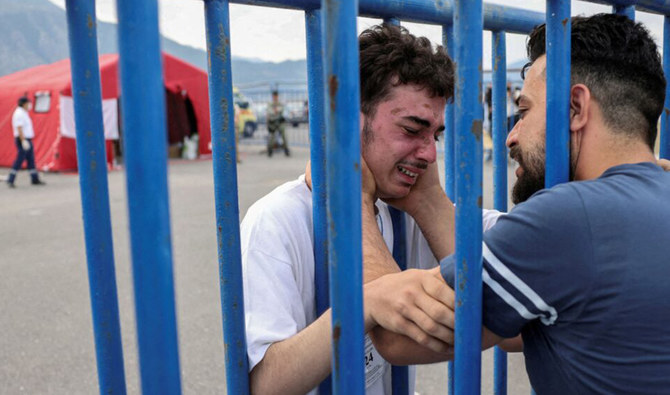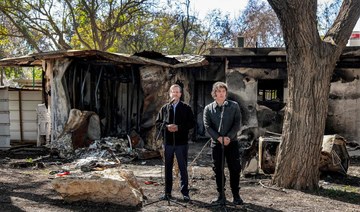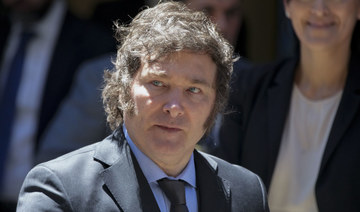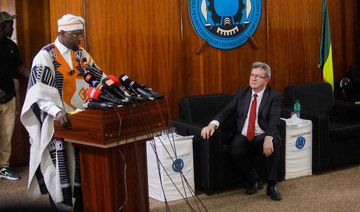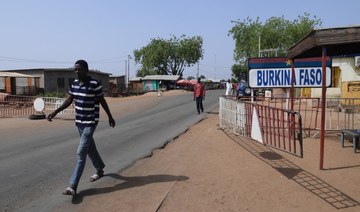KALAMATA: A Syrian teenager who survived a shipwreck that killed at least 78 people off Greece was emotionally reunited with his elder brother on Friday, but there was no news for other relatives searching for loved ones.
Witness accounts suggested between 400 and 750 people had packed the 20- to 30 meter-long (65- to 100-foot) fishing boat that capsized and sank early on Wednesday morning about 50 miles (80 km) from the southern coastal town of Pylos.
In the immediate aftermath of the disaster 104 survivors and 78 people who drowned were brought to shore by Greek authorities, but nothing has been found since.
A massive search and rescue operation continued on Friday, but hopes were dwindling of finding any more survivors from the hundreds of people believed to have been on board the boat when it sank in some of the deepest waters of the Mediterranean.
Most of the people on board were from Egypt, Syria and Pakistan, government officials have said.
Early on Friday survivor Mohammad, 18, from Syria, burst into sobs as he spotted his elder brother Fadi, who had traveled from the Netherlands searching for him.
They wept and hugged through metal barricades, erected by Greek police around a warehouse in Kalamata where survivors had been sleeping for the past two days.
“Thank God for your safety,” Fadi said, repeatedly kissing his younger sibling on the head.
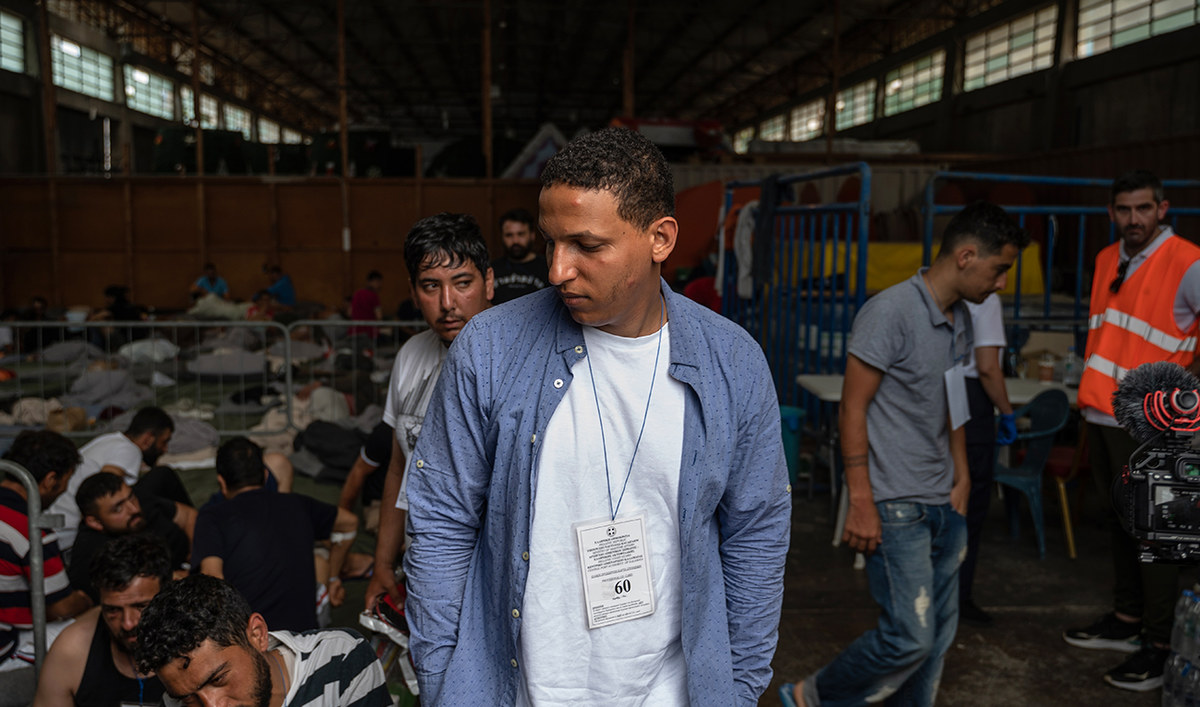
A survivor stands as other survivors of a shipwreck sit inside a warehouse at the port in Kalamata town, on June 15, 2023, after a boat carrying migrants sank in international waters in the Ionian Sea. (AFP)
About 25 other relatives gathered outside the Kalamata shelter, hoping for news, clasping screenshots of their loved ones on mobiles phones.
Most of the survivors, 71 people, were transferred on Friday by bus to the migrant camp of Malakasa, a gated facility with barbed wire fencing 40 km (25 miles) outside Athens. They were expected to apply for asylum.
Adil Hussain was searching for his brother, who had lived for 12-14 years in Greece undocumented and had returned to Pakistan. After two years of living in poverty there, he decided to make the journey to Italy.
“A friend of my brother’s is here. I want to ask where my brother is. I spoke to him last Friday, he said we’re leaving Libya tonight,” said Hussain who lives in Greece.
Anwar Bakri, Secretary General of the Syrian Association of Greece, was also standing outside the camp. He said he had received “hundreds of calls” from people in Germany, in Turkiye and other countries, who feared their Syrian relatives were on the sunken boat.
“It’s a tragedy,” he said. “I have numerous photos, at least 15 photos until now, of missing people, young children, 16 year-olds, 20 year-olds, 25 year-olds, whose parents are looking for them,” Bakri said.
“From what I was told, there are no women. All the women died, they sank, they drowned with their children in their arms.”
Migrants had paid $4,500
Pope Francis, who visited Greece two years ago to draw attention to the plight of refugees, urged for measures to prevent similar incidents in the future.
“I feel great pain at the death of the migrants, including many children, in the shipwreck in the Aegean Sea,” he said on Twitter. “We must do everything possible so that migrants fleeing war and poverty do not meet death while seeking a future of hope.”
The aging fishing vessel was thought to have departed from Egypt, then picked up passengers in the Libyan coastal city of Tobruk on June 10. Greek authorities say survivors have told them they paid $4,500 each to go to Italy.
The exact circumstances of the vessel sinking while it was being shadowed by the Greek coast guard are still unclear.
Authorities, who were alerted by Italy on Tuesday and subsequently monitored the vessel over a period of 15 hours before it sank, say occupants on the vessel repeatedly refused Greek help, saying they wanted to go to Italy.
An advocacy group that had been in communication with the vessel said that on at least two occasions persons on board pleaded for help. The group, Alarm Phone, said it had alerted Greek authorities and aid agencies hours before the disaster unfolded.
’Current approach unworkable’
The International Organization for Migration (IOM) and the United Nation’s refugee agency, the UNHCR, said the latest tragedy in the Mediterranean was the worst in several years and urged states to address the gaps in search and rescue rules.
“It is clear, that the current approach to the Mediterranean is unworkable,” IOM’s Federico Soda. “Year after year, it continues to be the most dangerous migration route in the world, with the highest fatality rate.”
Greek authorities denied accounts that surfaced late on Thursday that the boat flipped after the coast guard attempted to tow it.
“There was no effort to tug the boat,” coast guard spokesman Nikos Alexiou told state broadcaster ERT.
Nine Egyptians, aged between 20 and 40 years, were arrested over the shipwreck on Thursday evening. Authorities said they faced charges of negligent manslaughter, exposing lives to danger, causing a shipwreck and human trafficking.
They were expected to appear before a judge and respond to the accusations in the coming days.
Under a conservative government in power until last month, Greece took a tough stance on migration, building walled camps and boosting border controls.
The country is currently governed by a caretaker administration pending an election on June 25.



